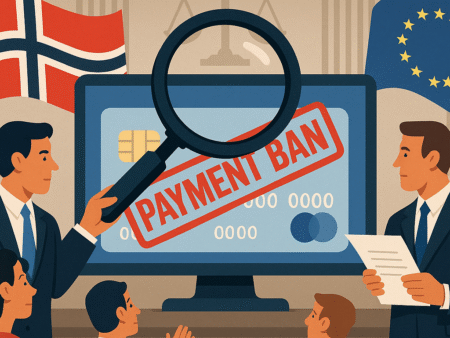
The old monopoly on gambling in Finland is packing its bags. By 2026, private companies with licenses will step into Finland online casino market. This is a huge shakeup, maybe an biggest the Finland’s ever seen in gambling world.
Veikkaus has worn the crown for years. One brand, one system. But offshore casino sites keep popping up. Tax money slips away. Folks ask for the better rules for safe play. The Finland’s leaders had to do something.
So what’s really changing? What does it mean for Finnish casino players? How will the Finnish operators adjust? Will things get better or worse? Answers ahead.
Table of Contents
Why Finland Decided To Change Its Online Casino Rules
Push to open up Finland’s online casino market took years of arguing. Offshore sites grabbed players. Billions of euros disappeared, never taxed. Worries about keeping players safe got loud. The Finland’s new gambling rules try to fix those problems, giving people freedom but keeping watchful eyes..
Timeline of Finland Gambling Reform
- 2024. Government puts out a plan.
- 2025. Parliament argues over draft law.
- 2026. New system for licenses gets a green light.
- 2027. First official licensed online casinos start up in Finland.
That’s quick.The Finland online casino market isn’t slowing down.
How Licensing Will Work
The Finland’s new setup looks a lot like Sweden and Denmark. Operators at home or abroad. Tough requirements if you want a license. Tax on gross gaming revenue means more money for Finland. Every casino has to offer tools for responsible gambling. Even ads get rules so minors aren’t targeted. Operators get to compete. Players get better protection.
What’s In It For Finnish Casino Players
Finnish casino players score some wins.
- More choice. Suddenly, tons of brands to pick from.
- Better bonuses. Competition has tendency to turn up heat on offers.
- Safer play.Licensed casinos must offer things like deposit limits and ways to lock yourself out.
- Tax-free winnings. If site is licensed in EU or EEA, keep every euro you win.
With all these changes, players get freedom and safety. No need to pick one over other.
Operators In Finland. Pros and Cons
Operators in Finland get tossed into a mix of chances and headaches.
- Good side. Finland is home to tech-smart people who like digital stuff. The market could be huge.
- Tougher side. Lots of rules and costs to follow. You’ll need deep pockets and thick skin.
- The Veikkaus loses its solo spot but can battle with everyone else now.
All in all, it’s time for Finnish operators to get creative.
Upsides To The Finland’s Gambling Reform
- More tax money coming in. Billions used for things Finland needs.
- Room for growth. More jobs, fresh ideas for iGaming.
- Better safety. People can play without big risks.
The Finland’s new casino rules should make things fair and open.
Downsides To Finland Opening Up The Casino Market
- Too many operators. Players might get lost in all the choices.
- Too many ads. Casino marketing could get loud, maybe even annoying.
- Tough rules. Some international companies may steer clear from Finland.
Sure, it’s mostly good news but there are potholes in road.
Quick Lessons From Neighbors
- Sweden got licensing working but ads flooded market.
- Denmark keeps things balanced, maybe an best blueprint for Finland.
Finland wants to mix and match what works to keep its casino market on solid ground.
Looking Ahead For Finnish Casino Players
Big changes for Finnish casino players:
- Freedom to pick from lots of options.
- Better reasons to stay at official sites.
- Safer play in long run thanks to smart rules.
Finland’s gambling reform plans to keep fun and safety in right balance.
To sum up
Finland opening up online casinos changes game. Players get to choose and play safer. Operators in Finland get to fight for spotlight.
Yes, there’s a risk-a flood of ads, maybe too much choice-but overall things look brighter. Finland’s ending gambling monopoly. Now market can grow, modernize, and put casino players first.











